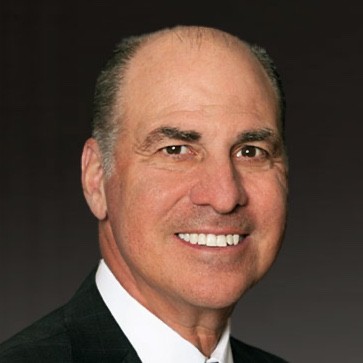Transcripts

Erik: Joining me now is Harley Bassman, Convexity Maven, as he is known, and also with Simplify Asset Management, where he runs several ETFs. Harley prepared a slide deck to accompany today's interview. Registered users will find the download link in your Research Roundup email. If you don't have a Research Roundup email, just go to our homepage, macrovoices.com, look for the red button above Harley's picture that says, looking for the downloads. Harley, it's great to get you back on the show. Let's start with the big picture on mortgage-backed securities, because there's something I've never understood about them. We all know about these things, everybody does. We're not talking about the esoteric securities that only professionals can trade, because they're not available on listed markets. We're talking about bonds here. Yet, for some reason, it seems to me like mortgage-backed securities are kind of a mystery world that are, all these bonds get sucked up into CDOs for some reason, and nobody trades the bonds directly. Am I missing something? What's going on here?
Harley: Well, there's a number of things. First off, thank you for having me back. It's a great compliment. You guys have the best financial show on the market, so it's great to be here. I think what's important to note is that when we say the word mortgages, people generally think, great financial crisis, subprime, default risk. That's fine. That is true. But that's not what I'm talking about here. When we say mortgage-backed securities, MBS, we're talking about basically the second largest asset class in the bond market, only behind US Treasuries, and certainly more than corporate bonds and junk bonds. And these securities, they would drive the whole mortgage process, because most homes are purchased with loans that get put into mortgage-backed securities that are wrapped guaranteed by Fannie, Freddie or Ginnie. Civilians, what I call retail non-professionals, have no contact whatsoever with these bonds. Almost no one buys these securities. They're not available because they're just dirty little animals. You will buy them on ETFs or mutual funds or others, lots of ways to do it. But most people do not trade mortgage-backed securities for a variety of reasons we could talk about.

Erik: Joining me now is Forest For The Trees Founder, Luke Gromen. Luke, it's great to have you back on the program, it's been a long, long time. I want to start with what the heck is going on with China, because I've been trying to get my head around this all year. I've been asking lots of our feature interview guests to explain the China situation. And the explanation has been, everybody thought China was going to recover and the stock market was going to recover, and it just didn't happen. Well, that was only two weeks ago. I swear, I’m not making it up. Now, it seems like China is outperforming everything. The Chinese equities are overbought, outperforming the S&P on the year. What just happened, what's driving it, what's the bigger picture, and how does this fit?
Luke: I don’t know if I'm the right person to talk to on that…
Erik: I think you’re the perfect person to ask for that question.
Luke: So for me, I've said this in a couple like the video appearances that I do and what have you is, I couldn't figure out what China's plan was. To me, we know China tends to not do anything without a plan behind it, and we knew overwhelming Western consensus was China's making a mistake by not stimulating, etc., and sort of, China is uninvestable, and China is collapsing. And I, knowing that China tends to have a plan, knowing that clearly the economy was weakening meaningfully, and they weren't stimulating, etc., I was sort of grasping for possible reasons, one of which I came to was maybe they're engaged in basically a pain contest, which was to say, you know what, we're not going to stimulate. And the problem with that is, if we don't grow, that's going to force you to cry uncle first, USA, you're going to have to cut rates. You want to weaponize the dollar against us? Great. We just won't stimulate. We'll take pain, we'll take pain, we'll take pain, and we'll see who ends up going first. And that was kind of my working theory, loosely held. So fast forward two weeks ago, we have Powell come out and surprise most of Wall Street by doing 50 basis points and promising 50 more by year end. Dollar weakens, US asset crisis rip. Then, we have China follow up four days later, doing what they did. And so, now it starts to look like one of two things, which is either Powell cried uncle first, which gave China the ability to sort of then finally, do the stimulus without having to do stimulus with the yuan at a key weak threshold, the yuan has obviously rallied meaningfully versus the dollar from July through today, and that gives China the breathing room. Or, the US and China are coordinating on some level. We've been writing since November of last year, when Treasury went over to Beijing and talked about, China needs to basically raise their costs, right? Well, they raised their costs by raising the currency, by weakening the dollar. So, we've been saying for 10 months, starting last November, that it looks like the that Yellen and the Chinese are working on some sort of deal to strengthen the yuan, weaken the dollar. And maybe this is part and parcel to that, that basically, sort of a point has been reached where, okay, they agreed to something, and we're moving in that direction. So, now the Americans can cut rates and weaken the dollar, and the Chinese can do what they're doing, which is stimulating. And I think, maybe the most important takeaway that I took so far from the stimulus is the yuan rose against the dollar on this, that is, if you would have asked 100 people, including me, hey, China comes out last weekend, before they did this, China is going to do a big stimulus this week. What does the yuan do? I would have said, and all other 100 probably would say, yuan falls sharply, and instead, the yuan rose pretty notably. And so that points to sort of a capital repatriation, tight dynamic that I don't think a lot of people are talking about yet. I don't even feel that strong about it yet, just been too short, but that's how I'm thinking about as a framework. I could go either way. I could be pushed either way on it. I don't have a strong feeling on it, but that's kind of the framework I'm looking at about it.

Erik: Joining me now is Eric Peters, CIO of One River Asset Management and also of Coinbase Asset Management. Eric, it's great to get you back on the show. Let's start by talking about the US dollar. What's going on here in terms of Fed policy, big picture? It seems like everybody thought the Fed should not wait until this close to the election to start easing, because that would create the appearance of them becoming political. Seems like they have hit across that Rubicon. They sure do appear political. What is happening? What should we expect? And where do you see things headed for the dollar from here?
Eric Peters: Well, for starters, great to be back. It's been a while, actually, as we were chatting pregame here, it's been a little while, really nice to be back. Boy, you know the Fed being political is, I think the Fed is naturally political, given that the chairman is appointed. Question is, how removed are their decisions from the political calendar and process? And I think they've got a very difficult job here. They were well behind the curve for a long time. They had thought inflation would be transitory. They actually changed that tune and raised rates at a pretty unprecedented pace relative to history, and now we're sitting here with quite high real rates. Prime rates are extraordinarily high on a real basis, when you look back historically, which is where many businesses borrow, and I think that they've really been praying that we get lower inflation here, and a bit of softness in inflation, just so they can try to bring that rate back down. And, hopefully create a “soft landing.” I don't think it's extremely political. I think there are all sorts of other political manipulations that lead up to the election. The budget deficit this year has gone up 25% roughly, relative to last year coming to the election. So, I think that's probably a more powerful force than what the Fed can do, just briefly before the election.

Erik: Joining me now is freelancer.com founder and AI expert, Matt Barrie. Matt, it's been eight months since we spoke about AI last, it seems like there's been a disturbance in the force, some kind of a blow off. I don't know if it was a top or just an intermediate step along the way, but it seems like the enthusiasm is starting to abate a little bit on AI. Is this the beginning of the end? The end of the beginning, or something different? Let's recap what's happened since we spoke last.
Matt: Well, it's certainly interesting times. I think perhaps the best way to understand where we are in the space is probably to just do a bit of a recap first on the fundamental breakthrough that's happened in AI and how that translates to the underlying economics. Because, while the breakthroughs have been astonishing and unpredictable, even for the inventors of many other systems themselves, once one understands the economics, I think your listeners will get a good feeling for what's actually going on in the space and how it may play out. Now, fundamentally, what's going on, and the big breakthrough that's happened in the last few years, is the ability for effectively, machine learning or artificial intelligence, to consume very, very large data sets, to train and do so in a way where the more data you feed it, the better the AI gets. If you look at one of the very common forms of AI that are out there, which are these large language models like ChatGPT, which I think it is probably the AI that most of your listeners will be familiar with, essentially what these LLMs are, at the very core, a next word predictor. So, you take a lot of training data, you train the model, you then give it some new input, which is what you type into the ChatGPT interface. And all it's really doing, fundamentally, is predicting the next likely bit from your question, which was effectively the answer. So it's a bit like a next word predictor. So you give it a sentence, and ChatGPT will predict the next likely word, next word after that, and so on. Now, the fundamental breakthrough that happened in this space was really what's called a Transformer, which was invented by Google, which allows neural networks or machine learning to consume large amounts of training data without getting lost, and to do so in a very highly paralyzable way. So that reduces the time to train it and partly the cost. So you take a large amount of text, say, a large amount of English text that you scrape off the internet or get from books or other places, and you train it, and in the first instance, the AI will complete the sentence in a way that the output looks okay, but you could tell it was obviously written by a computer. But then what the Transformers allowed these models to do is step up the amount of data you feed in by an order of magnitude. Step up by an order of magnitude to compute and the parameters in the model. And then all of a sudden, the AI starts to get really good at completing that sentence. You know, the English is perfect, and so forth and it can carry a conversation. It becomes a little bit mesmerizing. But you step up again and again and again, and all of a sudden, that's where you get this sort of voodoo magic coming out the end of the model, where it can suddenly speak to you in Persian. It doesn't know math, it doesn't know math, it doesn't know math, suddenly, it can do University calculus. It can pass the bar exam. It can write the next Harry Potter book. It can do pattern recognition. It can bounce a pencil on a robot arm. It can control the HVAC system in the building. Because it's consumed so much data into this model that these abilities start emerging now. These abilities are emerging in a way where the inventors, they didn't predict them, they don't know how it's really happening. It's just kind of coming out with a certain amount of magnitude. And I think this is the important thing to remember, in terms of the fundamental economics, is that, the breakthroughs that we're seeing as we go from ChatGPT to GPT 4.0. And, we're waiting for GPT 5.0 to come out sometime, it's been at least, I think, since was it March 2023? We've been waiting for GPT 5.0 to come around. These models need to consume ever large amounts of data. They need to consume and do so with ever increasing orders of magnitude in terms of compute that has real constraints in terms of access to chips, access to data centers, access to energy, and fundamentally, you also need access to the actual raw data itself. I mean GPT 2.0, which was really only interesting to computer scientists, and came out many, many years ago that had about 1.4, 1.5 billion parameters in the model, and scraped out about 8 million web pages. And to give people probably a bit of an idea, there's probably about a billion websites on the internet, and about 200 million of them are basically active. GPT 3.0, when that came along, stepped it up by an order of magnitude. So, you went from 1.5 billion parameters, you can think of a parameters like a synapse in a brain, and it went from 1.5 billion to about 175 billion parameters. And the data it scraped down was about 400 billion tokens, which is about 3% of Wikipedia, about 8% of books, 22% of the web, and 60% of what we call a common crawl data set, which is what all these models are using the fundamentals to train on.
When GPT 4.0 came along, which is that big leap, where all of a sudden it could pass any exam that any human could take in the top decile, or sometimes in the top percent, it stepped up from 175 billion parameters, or synapses, to 1.8 trillion parameters, and it went from 400 billion tokens to 13 trillion tokens. And pretty much consumed very, very large percentages of the web. It added in Twitter, it's believed to add in Reddit, YouTube, etc., and so forth. But it consumed a huge, huge amount of data. Now we've been sitting around waiting for some time before GPT 5.0 comes along. And you think about, well, where does it go from here? Where does it get the data? Where does it get the compute? Where do the chips come from? And where does the money come from? I think the last estimate of the training model, the last training instance for GPT 4.0 was something like $80 million, just to do a training run. And I think Gemini is estimated to be something around $200 billion. So yeah, as we kind of step up going through the scale, you can see here, we're starting to reach some fundamental constraints in terms of economics and reality, in terms of where's the data coming from. If you scrape down the entire internet, I mean, there are some really good contemporary data sets, for example, in your phone, and there are many other data sets that we will consume. They're trying to get into video, which is obviously, there's a lot of data there we haven't really got into, in a very, very big way. But where's the money coming from? We've seen Nvidia's stock price go tilt, and I think they're punching about $300 billion a quarter of revenue, but 46% of that revenue that's coming in is coming from four customers, because you probably guessed the likely suspects of who those four are, because there's not many companies out there that can afford to buy the chips, set up the data centers and run these training runs. And so that's kind of why I think we're in this little bit of a lull right now, is because we're starting to see that we've kind of caught up to the available easy data, the available easy compute within the constraints of what companies have to spend on training runs. And now we're starting to jump up that next order of magnitude. And that's why, despite OpenAI promising all these things, I mean, what have they talked about since GPT 4.0 has come out? We've had talked about this advanced voice mode search GPT, which is their attempt to go after perplexity in providing a better version of Google. There's all this cryptic meme activity on Twitter, which I don't know if it's Sam Altman kind of just running a soft puppet account, or what have you, talking about strawberry, whatever that may end up being, Orion and obviously Sora, the video modality of the GPT model, where some pretty impressive videos were shown.
But then there's been nothing for months as OpenAI is just trying to figure out how to make it all work. And it's also very clear, I think, to anyone, the layman even out there, that there's a complete lack of sustainable competitive advantage, open source is catching up very, very quickly. Facebook is really leading the way there by open sourcing a lot of the Llama tooling that they're developing, in order to neuter the competition and make it really a war of attrition in terms of resources. And there's no business model right at the moment charging a few cents for an API call. The end reality is, there's no actual business model here with these foundational models. Now, there's going to be some incredible applications, which we'll talk about later with the AI and the incredibly lucrative opportunities. But in terms of these foundational models that are taking $100 billion to do a training run, and those numbers going up by laws of magnitude, you've got to think about it, if your cost of goods is $100 million to do a trading run, you've got to generate probably at least $500 million of revenue in order for that to be an economically viable activity as a business. So, we're kind of in this lull at the moment. There's certainly been some interesting things happening at Open Source. There's been some interesting bits and pieces coming out in the space around the edges, certainly in the image space, and the ability to generate high fidelity images of any particular type, and the reverse, in terms of being able to analyze your images and then kind of extract what's going on in the scene, some pretty amazing applications that are going to be quite possible. It's very clear that the text modality is pretty much solved, and now they're trying to chip away on video. So, some pretty amazing things have come out. But fundamentally, we're reaching these limits in terms of just the world. Compute, chips, access to data, and ultimately the underlying physics of all of that, which will get into energy and so forth, which I know we'll talk about later in the episode.

Erik: Joining me now is Bianco Research founder, Jim Bianco. Jim, it's great to get you back on the show. Last couple times that we had you on, you made the prediction that if the Fed did what they have now done, which is to wait until September before any rate cutting, they would risk the appearance of having become political. I'm going to go out on a limb here and say, I think that they've crossed that Rubicon. The Fed looks political. What are the implications of that? Does that really change anything?
Jim: Yeah, the Fed has definitely become political. Let me back up and remind everybody what I said in our last conversation in May, whatever the Fed policy was going into Memorial Day, were they tightening? Were they holding or were they cutting? Usually, will make it until Election Day. So to be clear, because people kind of misunderstand what I'm saying, if they were tightening going into Memorial Day, they could continue to tighten through the summer all the way to election day. If they were cutting, they continue to cut. They were holding because their last move was in July of ‘23 with their last rate hike. So from July 23 to Memorial Day this year, they were holding. That would suggest they would hold through Election Day. Well, as we talk a week before the Fed meeting with over 100% chance that the Fed will cut rates at their September 18 meeting, over 100% means we're debating whether or not it's going to be 25 or 50 basis point cut, not if there's going to be a cut. It looks like the Fed is going to break from its historical tradition, and it's going to cut rates in September of an election year. In other words, change policy in September of an election year. And that is unusual. It does look like it's going to be very political. The interesting thing about it is the Fed could cut rates, and both candidates could wind up, winding up, you know, criticizing the Fed for the same reason that the Fed could cut rates, and the Trump administration could put out something saying, see, the economy is falling apart. You know, the Biden-Harris administration has done a terrible job, even Jay Powell acknowledges it. And the Biden-Harris administration could say, why are you doing this before the election? To give them a talking point as well. So they're looking to be very political. So yes, they've decided to cross that Rubicon.
Now, I've talked to some Fed officials about this exact topic, and their comment to me was, no matter what we do in September, we're going to be criticized. If we don't cut, we're going to be criticized. If we cut, we're going to be criticized. We might as well ignore the politics and do what we think is going to happen. And that seems to be what they're doing. They're believing the data that the economy is cooling and that a cut is warranted at this point. Final thing about this topic, I also said back in May to the line that the Fed is political, but not partisan. So, what I meant by that back in May, and I think it applies here, is, no, they don't sit around the FOMC table saying, okay, let's cut to the chase. We really want Harris to be president, because they tend to be more Democrat than Republican at the Fed. So what can we do to get Harris elected? They do not, do not do that. So I don't think they're partisan, and they think of it in those terms, but they are political in that they are worried about their reputation, they are worried about the ramifications of their policies in Washington, and they care a great deal about that. But given what they've told me, and I think it's right, if they don't move, they're criticized. If they move, their criticized, whatever, if September 18 comes up, they're going to be criticized whether they do something or don't do something. So they've kind of said that all cancels each other out. We've just decided that the data is cooling enough that it warrants a rate cut, and that seems to be why they're doing it.
MACRO VOICES is presented for informational and entertainment purposes only. The information presented in MACRO VOICES should NOT be construed as investment advice. Always consult a licensed investment professional before making important investment decisions. The opinions expressed on MACRO VOICES are those of the participants. MACRO VOICES, its producers, and hosts Erik Townsend and Patrick Ceresna shall NOT be liable for losses resulting from investment decisions based on information or viewpoints presented on MACRO VOICES.
